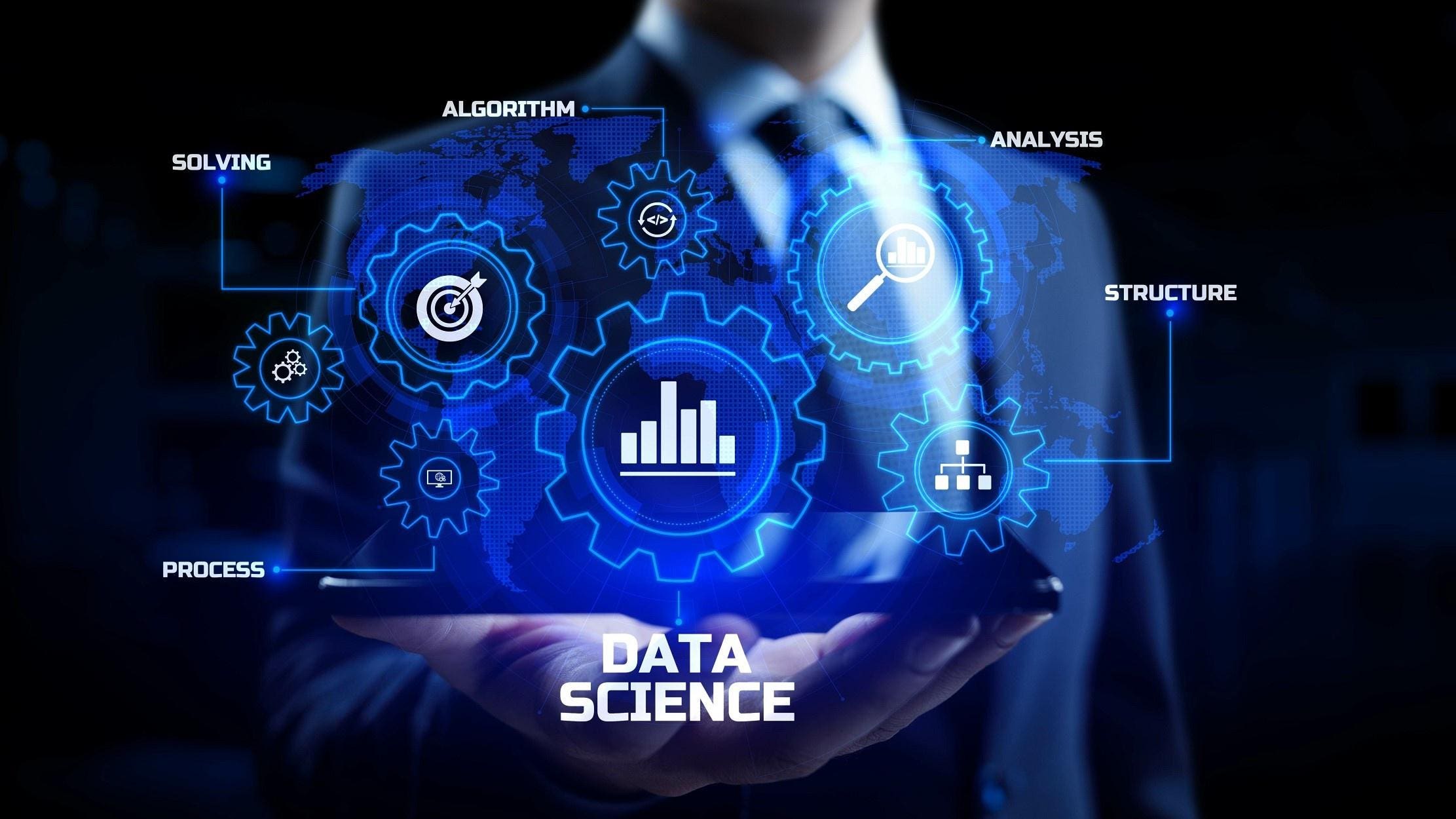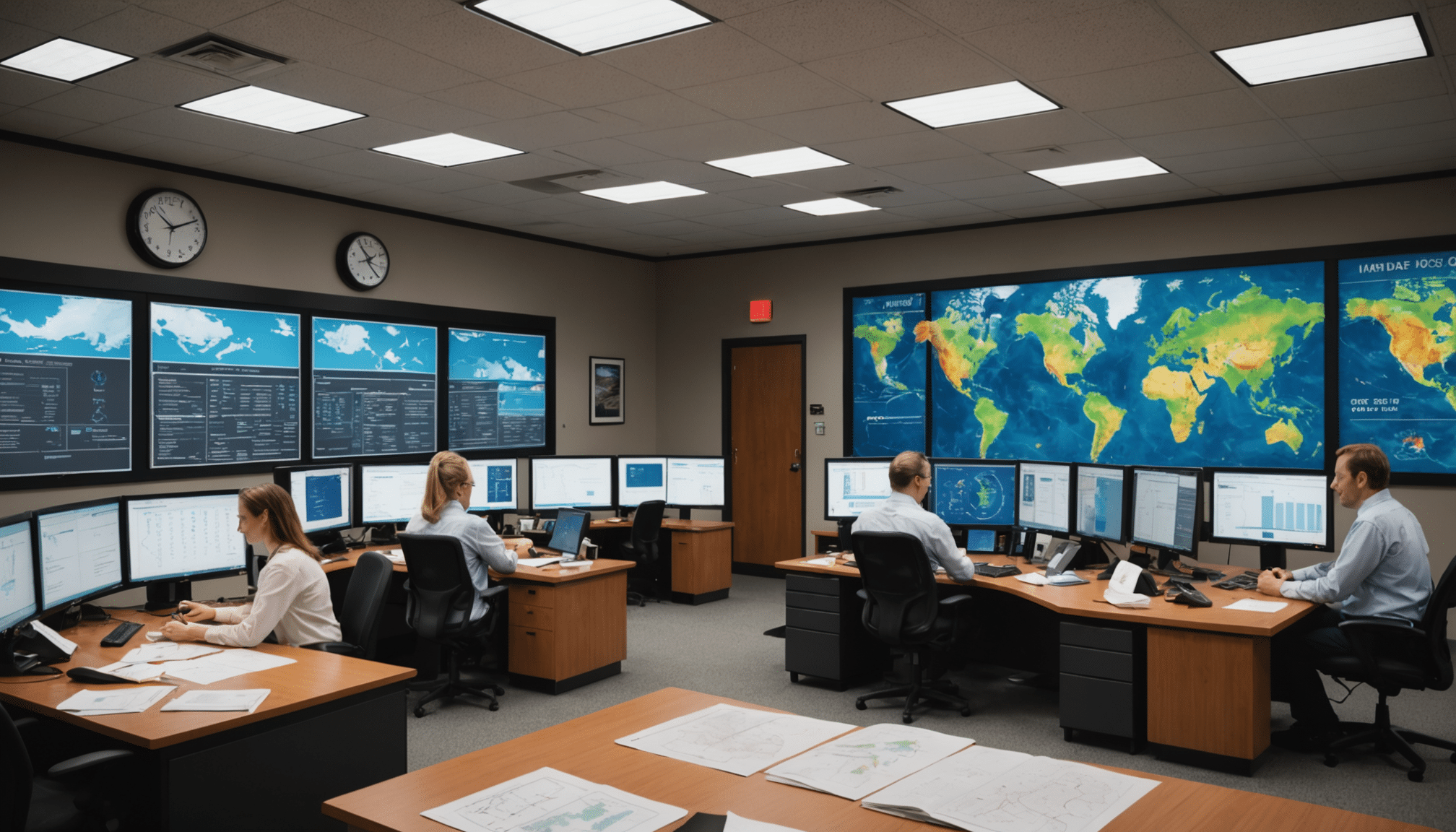In a world increasingly driven by technology, data science emerges as a beacon of potential, illuminating pathways to unprecedented innovation. As industries race to harness the power of data, the question arises: can this discipline truly unlock the door to the future? With its ability to extract meaningful insights from vast oceans of information, data science not only drives decision-making but also fuels creativity and strategic thinking. As we delve into the intricate relationship between data and innovation, we uncover the tools and methodologies that could shape tomorrow’s breakthroughs, painting a vivid picture of a future where analytics reign supreme.
Table of contents
ToggleThe Role of Data Science in Modern Innovation

The evolution of technology has heralded a new era, one where data science becomes the backbone of innovation. The ability to collect, analyze, and interpret vast amounts of data offers organizations unprecedented insights that drive decision-making and strategizing.
At its core, data science blends statistics, computer science, and domain expertise. This unique combination enables businesses to gain deep understanding through methodologies like:
- Predictive Analytics: Anticipating future trends based on past data.
- Machine Learning: Algorithms that learn from data and improve over time.
- Data Visualization: Presenting complex data in accessible formats for better understanding.
Data-driven innovation allows companies to leverage customer insights for enhancing products and services. By analyzing customer feedback and behavior, businesses can tailor their offerings, leading to increased satisfaction and loyalty.
Moreover, industries such as healthcare, finance, and retail are experiencing transformative changes thanks to data science. For example, in healthcare, predictive models can help in early disease detection, optimizing treatment plans and ultimately saving lives.
The integration of data science facilitates agility within organizations, allowing them to adapt quickly to market changes or emerging technologies. By harnessing big data and analytics, businesses can stay ahead of competition and seize new opportunities.
As companies continue to embrace data-driven strategies, the potential for future innovations is boundless. The fusion of technology and data science not only enhances operational efficiency but also paves the way for groundbreaking advancements that can transform entire industries.
Data-Driven Decision Making
Data science is increasingly recognized as a pivotal force in driving innovation. At the heart of this transformation lies the profound ability to analyze vast amounts of data swiftly and effectively. As organizations strive to remain competitive in a rapidly evolving landscape, integrating data science into their operations becomes not just beneficial, but essential.
The essence of modern innovation is rooted in the insights derived from data. With the exponential growth of data generated every day, companies can leverage advanced analytics to discover patterns, understand customer behavior, and anticipate market trends. By adopting a data-driven approach, businesses can refine their strategies, enhance product development, and ultimately create solutions that resonate with their target audience.
Data-driven decision making stands as a cornerstone of effective business strategies. Organizations that harness data science prioritize the following:
- Analytics over intuition: Prioritizing concrete data analysis reduces the risks associated with decision making.
- Continuous improvement: By analyzing results consistently, businesses can tweak and better their offerings in real-time.
- Personalization: Understanding customer preferences enables companies to tailor their approaches, increasing satisfaction.
Furthermore, successful implementation of data-driven strategies requires cross-departmental collaboration. When various teams come together, combining their insights with analytical findings, the innovation pipeline can flourish, leading to groundbreaking products and services that disrupt the market.
In summary, data science isn’t merely a technological tool; it is a transformative discipline that holds the potential to redefine the future of innovation. By emphasizing data-driven decision making, organizations can carve a path toward sustainable success in an increasingly complex world.
Transforming Industries through Data
In today’s fast-paced world, data science serves as a catalyst for innovation across various sectors. With the ability to analyze vast amounts of information, organizations can make informed decisions that redefine their strategies and operations.
One of the significant contributions of data science is its capacity to identify patterns and trends. By employing advanced algorithms and machine learning techniques, companies can uncover insights that were previously hidden. These insights not only drive efficiency but also pave the way for new product developments and market opportunities.
Moreover, data science empowers industries to enhance customer experiences. By leveraging customer data, businesses can tailor their offerings to better meet consumer demands. Personalized marketing strategies, data-driven recommendations, and improved service delivery are just a few examples of how data science shapes customer interactions.
Some key areas where data science is transforming industries include:
- Healthcare: Predictive analytics aids in disease prevention and personalized medicine.
- Finance: Fraud detection and risk assessment are optimized through data analysis.
- Retail: Inventory management and sales forecasting benefit from data insights.
- Manufacturing: Operational efficiency is achieved through predictive maintenance.
Furthermore, data science fosters a culture of innovation. Organizations that embrace data-driven decision-making are more likely to explore novel ideas and approaches. This not only enhances their competitive advantage but also fosters an environment where creativity can thrive.
As industries continue to evolve, the integration of data science will remain fundamental in driving transformation. Companies that harness the power of data are not just adapting to change; they are shaping the future of innovation.
Challenges Faced by Data Scientists
The journey of a data scientist is a thrilling ride filled with complexities and challenges. The rapid evolution of technology and the deluge of data can make it difficult for professionals in this field to keep pace. As they navigate this landscape, several prominent hurdles emerge.
One of the primary challenges faced by data scientists is the quality of data. Often, the data available is incomplete, outdated, or inconsistent, which hampers the accuracy of analyses and predictions. This necessitates significant time spent on data cleansing and preparation before any meaningful insights can be derived.
Another challenge is the interpretation of data. Translating raw data into actionable insights requires not just analytical skills but also a deep understanding of the domain. Data scientists must overcome the gap between technical capabilities and the business acumen needed to make informed decisions that drive innovation.
The availability of skills presents a further barrier. The demand for proficient data scientists is at an all-time high, yet the supply of talent has struggled to keep up. This skills gap can limit an organization’s potential to innovate through data-driven strategies.
Additionally, data scientists often wrestle with communication challenges. It is one thing to derive insights from data; it’s another to effectively communicate those findings to stakeholders who may not have a technical background. Creating a narrative around data is crucial for influencing decisions, making effective storytelling a necessary skill.
Moreover, ethical considerations surrounding data use have become increasingly prominent. Data scientists must navigate privacy concerns and ensure that their methods align with legal and ethical standards, adding another layer of complexity to their work.
In the world of data science, these challenges are not insurmountable. By recognizing these hurdles, data scientists can devise strategies to address them, paving the way for innovation and a more data-driven future.
Data Quality and Accessibility
The world of data science is vast, yet it is riddled with challenges that can impede the flow of innovation. One of the main hurdles that data scientists encounter is data quality. Poor quality data can lead to inaccurate analyses and misguided decisions, ultimately stymieing progress. Ensuring data integrity requires constant vigilance and robust verification processes.
Accessibility also poses significant challenges. Data scientists often grapple with disparate data sources that lack compatibility. The struggle for access to reliable datasets can delay projects and inflate costs. Organizations must prioritize creating a seamless data ecosystem that facilitates smooth data sharing and integration.
- Standardization: Establishing uniform data formats can greatly improve compatibility.
- Data Governance: Implementing strict policies ensures data quality and user accountability.
- Collaboration: Fostering collaboration among departments can enhance data accessibility.
Alongside data quality and accessibility, the skills gap in the field is alarming. As technology rapidly evolves, the need for ongoing training and development becomes imperative. Organizations must invest in the continuous education of their data science teams to keep pace with emerging tools and methodologies.
Moreover, the ethical use of data is becoming increasingly crucial as privacy concerns mount. Data scientists must be equipped not only with technical prowess but also with an understanding of ethical frameworks that guide their work. This dual focus helps safeguard user trust and promotes sustainable innovation.
Addressing these challenges is essential for data scientists who aspire to unlock the full potential of their craft. By embracing strategies to enhance data quality and accessibility while promoting ethical practices, the future of innovation can be transformed in meaningful ways. The journey is complex but invigorating, leading to groundbreaking discoveries that can reshape industries.
Interpreting Complex Data Sets
Data science is an ever-evolving field, constantly pushing the boundaries of what’s possible in technology and business. However, it is not without its hurdles. Professionals in this domain often grapple with a myriad of challenges that can hinder progress and innovation.
The first major challenge is the interpretation of complex data sets. Data scientists are frequently confronted with vast amounts of information, originating from diverse sources like social media, IoT devices, and transactional records. The intricacies of these data sets can result in ambiguity, making it difficult to extract meaningful insights. Key aspects that complicate interpretation include:
- Data Quality: Inaccurate or incomplete data can lead to misguided conclusions.
- Data Variety: Different formats and types of data require varied analytical approaches.
- Data Velocity: The speed at which new data is generated demands real-time analysis capabilities.
Another significant challenge is the integration of technologies. Data scientists must seamlessly combine various tools and platforms to facilitate effective data processing and analysis. This necessitates familiarity with numerous programming languages and software ecosystems, resulting in a steep learning curve.
Moreover, the evolving landscape of machine learning algorithms adds complexity. Staying up-to-date with the latest models and techniques is crucial for leveraging data effectively. This requires ongoing education and adaptation, which can be daunting.
Lastly, the communication of insights poses its own set of difficulties. Data scientists must translate their findings into a language that stakeholders can understand and act upon. Effective communication involves:
- Visualization: Crafting compelling data visualizations to illustrate key insights.
- Storytelling: Framing data in a narrative that resonates with the target audience.
- Collaboration: Working cross-functionally to ensure data-driven decisions are embraced by all teams.
As the digital world continues to expand, overcoming these obstacles is essential for data scientists. Each challenge presents an opportunity for growth and innovation, ultimately steering the path toward a more advanced, data-informed future.
Future Trends in Data Science
The realm of data science is witnessing a remarkable transformation, driven by the continuous advancements in technology. As businesses and organizations increasingly rely on data-driven decision-making, numerous trends are emerging that will shape the future of innovation.
One of the most exciting trends is the rise of machine learning and artificial intelligence (AI). These technologies are revolutionizing how we analyze data, enabling machines to learn and adapt autonomously. From predictive analytics to automated processes, the applications of machine learning are boundless.
Another significant trend is the growing importance of big data. As the volume of data generated each day skyrockets, organizations are leveraging sophisticated tools to extract meaningful insights. With the help of cloud computing, businesses can store and analyze vast datasets, enhancing their ability to make informed decisions.
The integration of data visualization tools is also pivotal. Effective visualization enables stakeholders to comprehend complex data in a more intuitive way. By translating raw numbers into visual formats, businesses can facilitate better communication and understanding across teams.
Moreover, the ethical considerations surrounding data privacy are becoming increasingly significant. As regulations like GDPR and CCPA come into play, organizations must prioritize transparency and responsibility in their data management practices. Adopting ethical frameworks not only boosts public trust but also fosters sustainable innovation.
Lastly, the democratization of data science is transforming the landscape. With the rise of user-friendly software and platforms, individuals with limited technical expertise can now engage in data analysis. This accessibility encourages a culture of innovation, empowering a broader audience to harness the power of data.
Embracing these trends will be vital for any organization looking to remain competitive in the rapidly evolving market. By understanding and implementing data science strategies, businesses can catalyze innovation and drive success in the future.
AI and Machine Learning Integration
In the ever-evolving world of technology, data science stands at the forefront, revolutionizing how businesses operate and innovate. Its power derives from the ability to sift through massive amounts of data, uncovering patterns and trends that can drive forward-thinking strategies.
One of the most exciting aspects of data science is its capacity to integrate seamlessly with artificial intelligence (AI) and machine learning (ML). This integration allows organizations to automate processes, enhance decision-making, and personalize customer experiences.
Key areas in this integration include:
- Predictive Analytics: Leveraging historical data to predict future outcomes, enabling businesses to make informed decisions.
- Natural Language Processing: Enhancing machine interactions by allowing systems to understand and respond in human language.
- Computer Vision: Deploying analytics to interpret and analyze visual data, useful in diverse fields like healthcare and security.
The synergy of data science with AI and ML sets the stage for advanced systems that continually learn from data inputs, adapting and evolving in real-time. This capability not only boosts efficiency but also fosters an environment of constant innovation.
As industries embrace these technologies, the landscape of innovation is being redrawn. Companies that leverage insights derived from data science are positioned to lead in their respective fields, pushing boundaries and redefining possibilities.
Ultimately, the future of innovation lies in the strategic application of data science. Organizations that harness this potential will not only survive but thrive in a data-driven world.
Ethics and Data Privacy in Innovation
The world is evolving at a breakneck pace, and the influence of data science in driving innovation cannot be overstated. As we stand on the precipice of major technological advancements, understanding the trends in data science becomes essential for businesses aiming to stay ahead. The future of data science promises to be exciting, with several key trends shaping its trajectory.
Artificial Intelligence (AI) and Machine Learning (ML) are becoming increasingly integral to data science. These technologies empower organizations to analyze vast amounts of data, leading to insights that were previously inconceivable. As AI algorithms continue to improve, businesses will be able to automate decision-making processes and uncover patterns that drive innovation.
Another significant trend is the rise of real-time data analytics. Companies are recognizing the need to respond quickly to market alterations. This capability not only enhances efficiency but also allows for a proactive rather than reactive approach to business challenges. Organizations leveraging real-time analytics can gain a competitive edge by staying attuned to customer preferences and market demands.
The internet of things (IoT) is also transforming data science. With an increasing number of devices connected to the internet, the volume of data generated is astounding. This wealth of information presents both opportunities and challenges. Organizations that harness IoT data effectively can innovate their products and services, tailoring them to meet the evolving needs of consumers.
Ethics and data privacy are critical considerations in the drive for innovation through data science. As organizations collect and analyze more data, the responsibility to protect that information intensifies. Striking the right balance between data utilization and consumer privacy will be crucial. Businesses must advocate for transparent practices and ensure rigorous privacy measures to build trust with their customers.
Furthermore, the ethical implications of algorithmic decision-making call for a deeper examination. Companies need to ensure that their data practices do not lead to bias or discrimination. This ethical approach not only safeguards consumers but also enhances the overall credibility of organizations.
The fusion of data science with a focus on ethics will likely shape the way companies innovate in the coming years. By prioritizing responsible data practices, businesses can unlock a future where data-driven strategies lead to sustainable and inclusive innovation.














